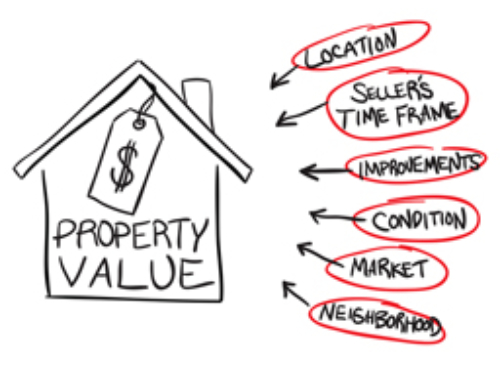 If you’ve been following along the past few days, I’ve been giving a primer course on 1031 exchanges. This common, but often misunderstood, tax code can help investors defer taxes from their real estate transactions. As more investors are profiting off of the foreclosures and short sales in the market, it’s never been a better time to brush up on the rules of Section 1031 of the IRS Code.
If you’ve been following along the past few days, I’ve been giving a primer course on 1031 exchanges. This common, but often misunderstood, tax code can help investors defer taxes from their real estate transactions. As more investors are profiting off of the foreclosures and short sales in the market, it’s never been a better time to brush up on the rules of Section 1031 of the IRS Code.
Make sure to read the previous posts for advice on timing, benefits, and exchange alternatives. The fourth and fifth important things you should know are as follows:
Plan proactively, not reactively. Many taxpayers do not contemplate using an exchange strategy until a few days prior to closing. While a qualified intermediary (QI) can certainly be engaged on such short notice, the timing challenges eliminate potentially beneficial proactive planning alternatives.
This can often prove difficult in situations such as asset sales by a partnership, whereby the partners within the partnership want to accomplish different tax and investing objectives, go their separate ways, restructure the partnership, and so on. It is recommended that taxpayers discuss exchange strategies with their tax advisors and QI well in advance of closing, thereby allowing adequate time to properly accomplish the desired exchange objectives.
Choose your QI wisely. Prior to 2007, a majority of taxpayers and their professional advisors did not ask many questions about the manner in which the QI held their exchange proceeds. Many assumed the QI was bound by state or federal regulations, much like the rules surrounding an attorney’s trust account.
Shockingly, QIs were not held to any such regulation and many taxpayers learned this lesson the hard way. Numerous QIs filed for bankruptcy from 2007-2009 for a variety of reasons and some were involved in illegal activities. As a result, the federal government and a handful of state governments have either enacted or are considering enacting laws that will regulate QIs.
In the meantime, taxpayers and their advisors should always consider the following:
- Make certain the QI uses segregated accounts. Never use a QI who comingles or pools client funds.
- Inquire as to whether the QI carries both errors and omissions (E&O) insurance and a fidelity/crime bond.
- Look for a QI who will allow the taxpayer to direct where the exchange proceeds are held during the exchange. Holding the funds in your bank of choice may help alleviate financial institution concerns and often allows you to directly contact your personal banker to confirm funds are present during the exchange process.
- Consider using a dual-signature account, whereby your signature is required prior to the QI moving the funds out of the exchange account — For larger transactions, the taxpayer may also want to consider using a qualified trust or escrow account as well.
- Ask questions of the QI and demand full transparency of all fees and processes.
- Carefully select a QI after thoroughly vetting out his or her structure and processes, and remember that bigger does not necessarily mean better. Often the larger bank-and-title company-owned QIs have less flexibility within their process and are only available to speak with you during banker’s hours. They may not provide many security options beyond their “we are too big to fail” philosophy. Likewise, smaller QIs may lack the financial capacity to provide all of the necessary security safeguards, or they may simply not be sophisticated enough to know what options exist. Taxpayers and advisors should make a detailed inquiry of their QI prior to using his or her services.
As 1031 exchange volume continues to increase month over month, these concepts should help summarize key exchange fundamentals and new developments within the 1031 industry.
Read More:
Property Taxes: 6 Ways To Get Your Property Taxes Reduced
Mortgage Rates, Programs, and Fees: FAQs From Ilyce Glink
Investing in Real Estate: Lease Option Benefits
Investing in Real Estate? Plan Exit Strategy Before You Buy
Ricky B. Novak serves as president of Strategic 1031 Exchange Advisors (“SEA 1031”), an Atlanta based consulting firm and qualified intermediary that provides real estate and tax consulting services for clients structuring complex real estate transactions and asset dispositions. Contact Ricky Novak at www.sea1031.com�v
.






